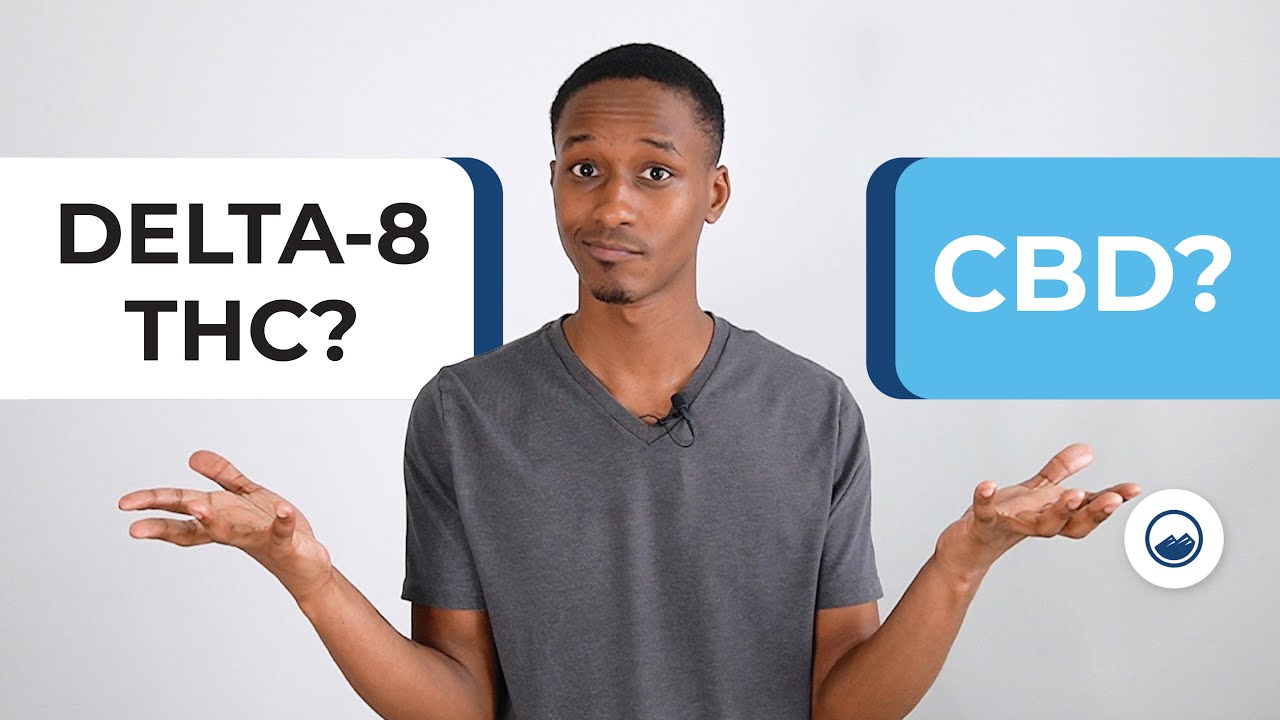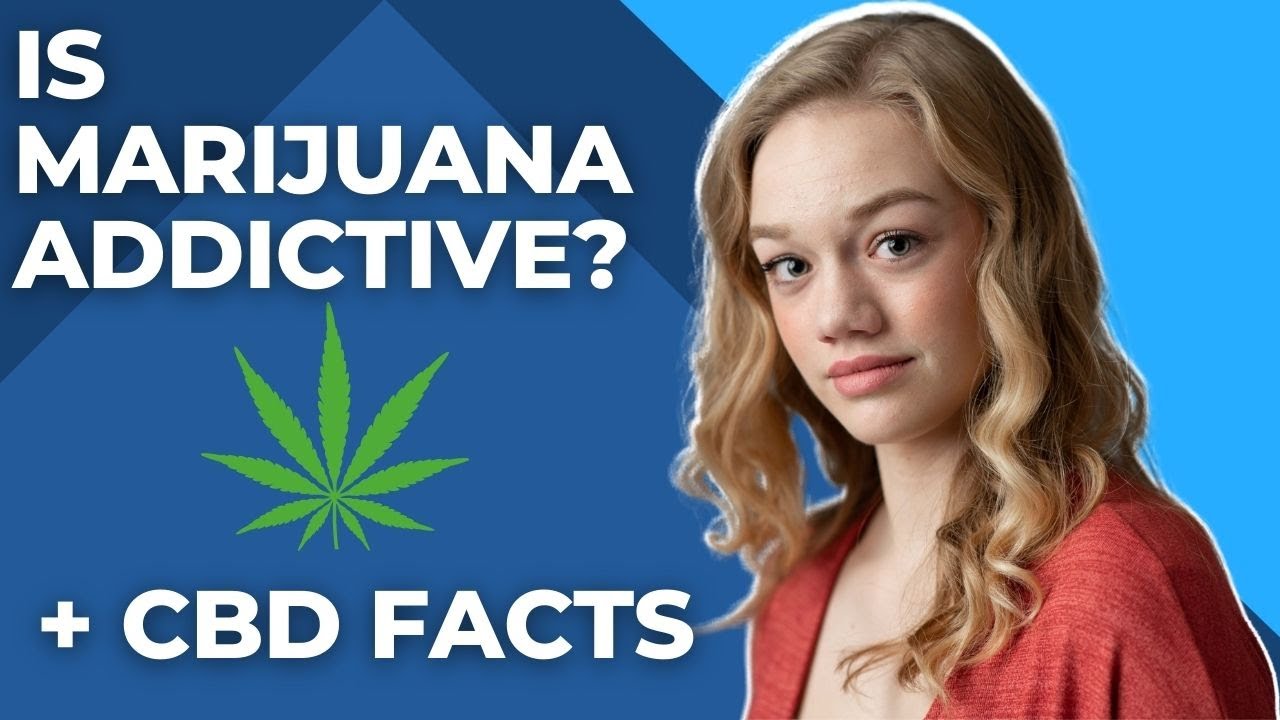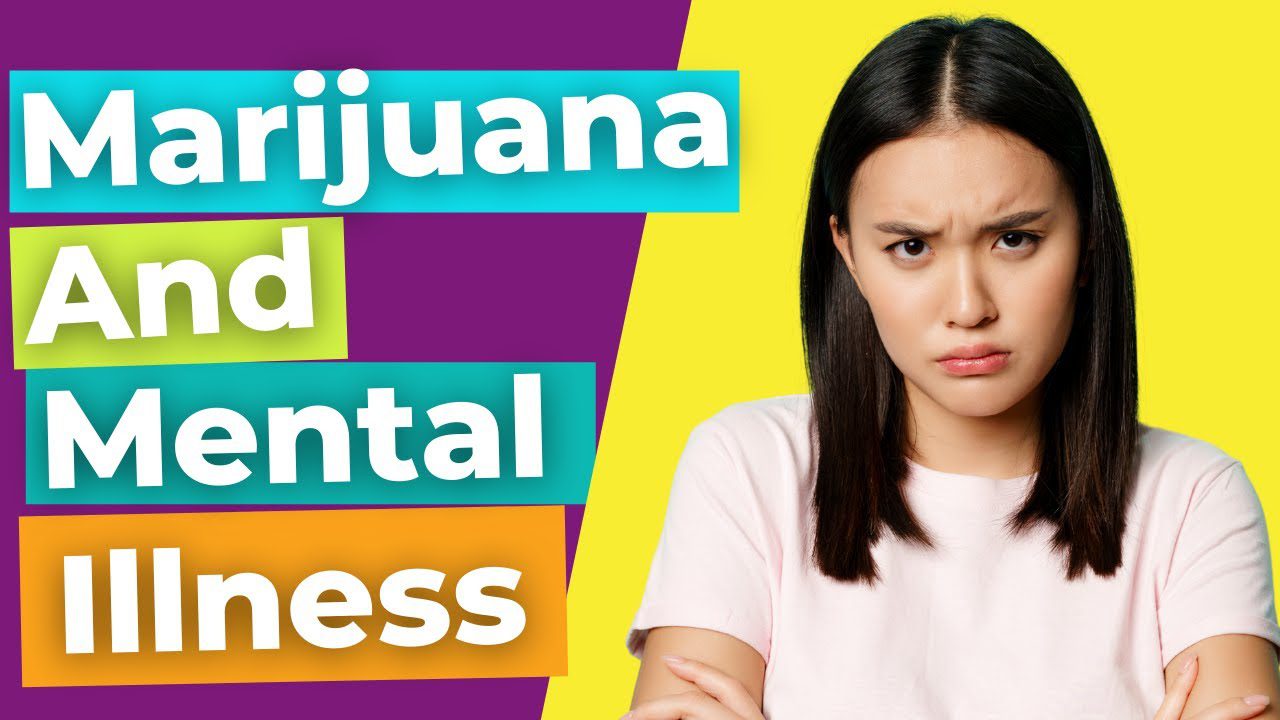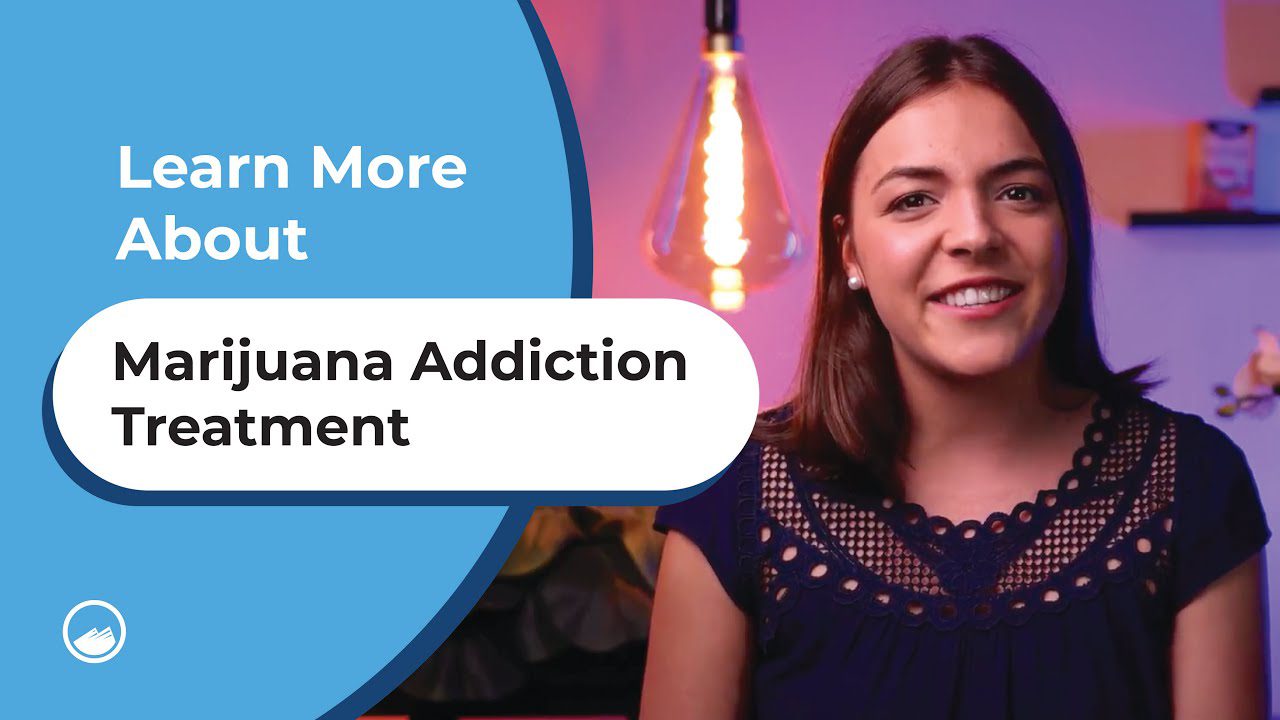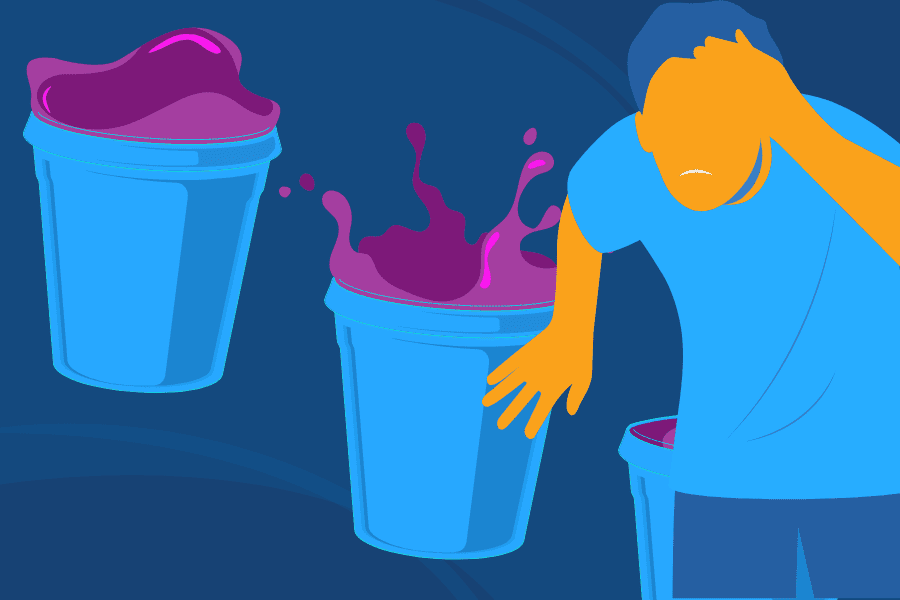What Is Delta8 THC?
Delta-8 THC or “delta-8 tetrahydrocannabinol” is a psychoactive compound extracted from legal forms of the cannabis plant.
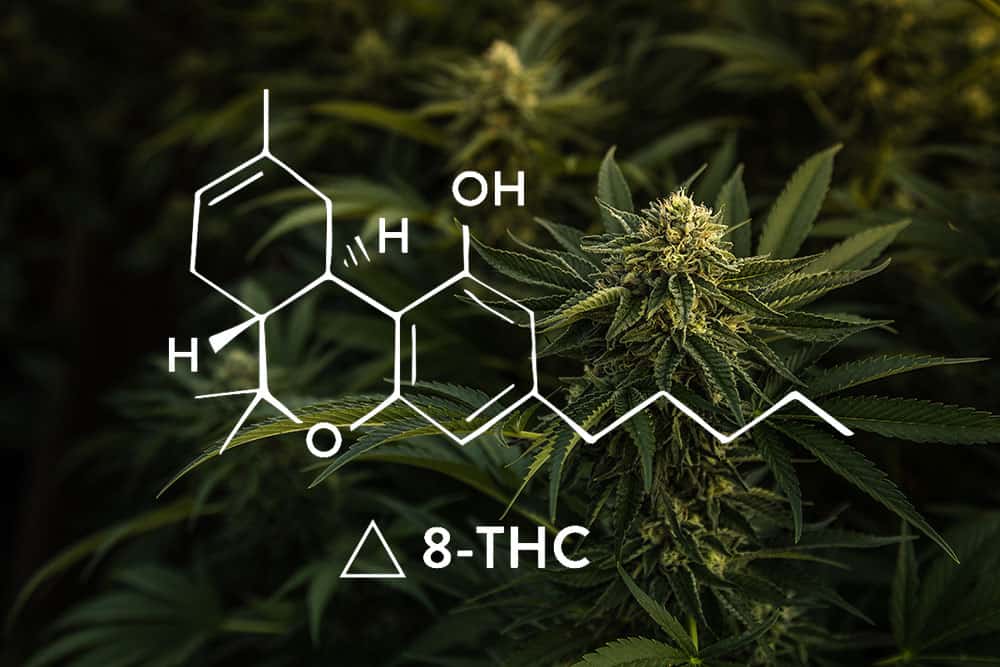
Delta-8 is a type of THC, which is the psychoactive compound in the cannabis sativa plant. Delta-8 Tetrahydrocannabinol is naturally found in the cannabis plant, but not in significant amounts. Therefore, concentrated amounts are commonly made from CBD.
While CBD and hemp don’t have enough psychoactive compounds to get users “high,” they do contain trace amounts of delta-8 THC. The THC can be extracted from these legal sources and sold along with other legal cannabis products. While delta-8 THC is extracted from legal CBD and hemp, it has similar effects on the mind as the more common THC compound called “delta-9 THC.”
Delta-9 or delta-9-tetrahydrocannabinol, is a compound in the cannabis plant that causes users to experience a “high.” However, delta-8 is considered to be less potent.
It can come in various products, including vapes, hemp sprayed with THC extract, distillates, tinctures, gummies, and infused beverages.
Individuals, especially young people, have turned to delta-8 under the impression that it is a healthier alternative to delta-9 products and more similar to CBD. However, there is not enough research that shows the benefits outweigh the risks.
The FDA has notified the public of the serious health risks of delta-8 THC. It is important for people, especially teens and young adults, to be aware of these risks to avoid facing serious adverse effects.
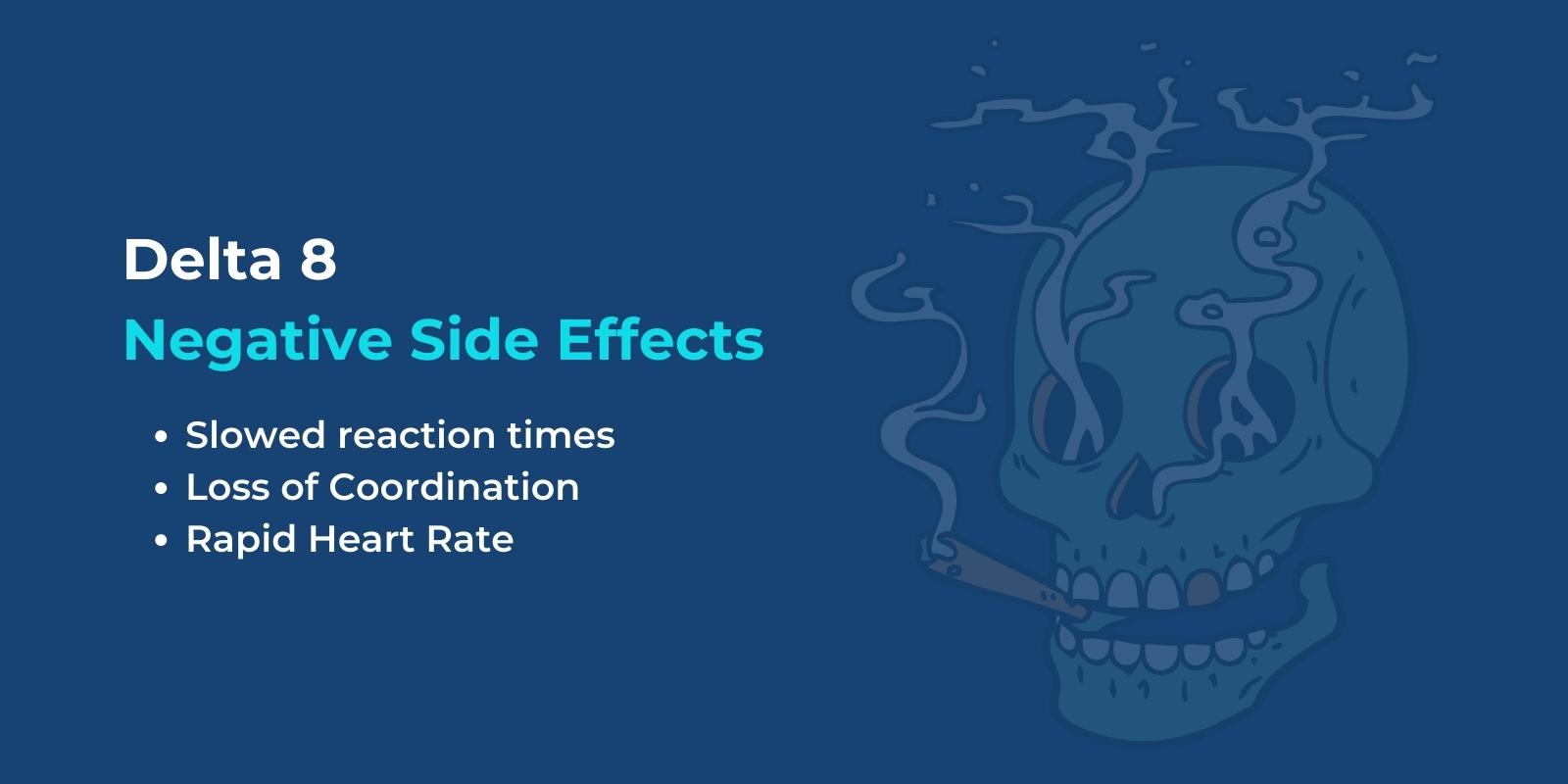
What Will Delta-8 Do To You?
Delta-8 can cause users to feel a “high.”
While people may use delta-8 to achieve relaxation or an uplifted mood, it can also come with adverse side effects.
A person may experience slowed reaction times, loss of coordination, rapid heart rate, and other effects.
Is Delta-8 Safe For Recovery?
Use is not recommended for those in recovery from a substance use disorder or those at high risk of developing substance use disorders.
Unlike other CBD products, it can produce a high and there are safety concerns depending on whether a person is in recovery or not. Someone who wants to use delta-8 while in recovery can put themselves at a higher risk for relapse.
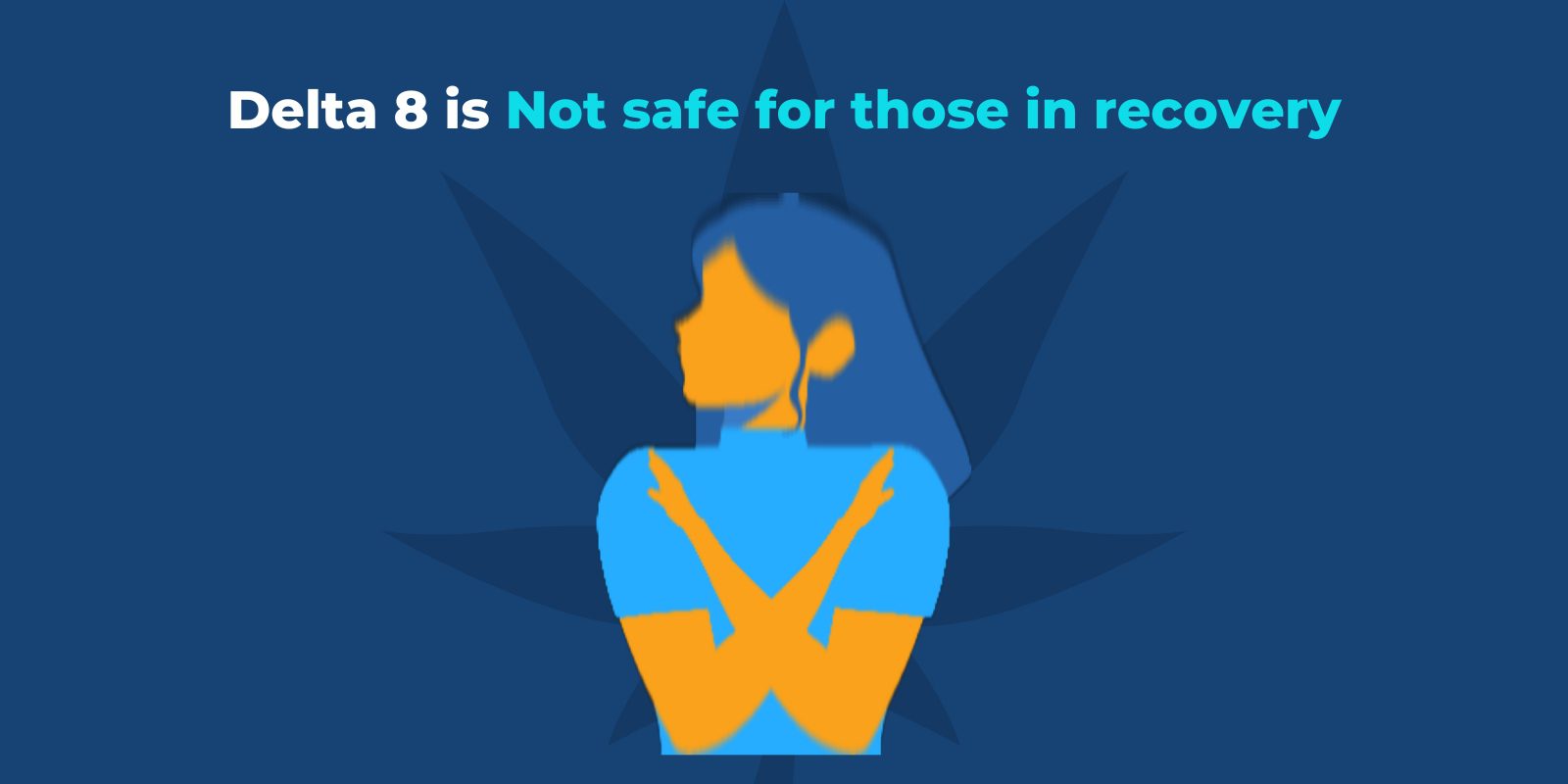
Why Is Delta-8 THC Legal?
Delta-8 THC is legal in most states because it is extracted from legal cannabis products like CBD and hemp.
Delta-8 THC has a similar chemical structure to the commonly known psychoactive compound delta-9 THC. Delta- 8 can be extracted from legal forms of cannabis, also known as hemp, and while it is not as potent as delta-9 THC, the psychoactive compounds affect the mind similarly.
According to the US Department of Agriculture (USDA), “The Agriculture Improvement Act of 2018 (2018 Farm Bill) authorized the production of hemp and removed hemp and hemp seeds from the Drug Enforcement Administration’s (DEA) schedule of Controlled Substances.”
Hemp refers to one variety of cannabis sativa plants with a low percentage of naturally occurring delta-9 THC. Hemp doesn’t have the same psychoactive chemicals present as the illegal form of cannabis, also called marijuana.
Since hemp-derived CBD is legal in most states, the CBD derivative delta-8 THC is also considered legal.
All cannabis products contain trace amounts of various cannabinoids. In small amounts, delta-8 THC will not affect you. However, when this cannabinoid is extracted, it can be used in greater quantities and get users high.
Despite its legality, this cannabinoid can be concerning for parents of teens and young adults.
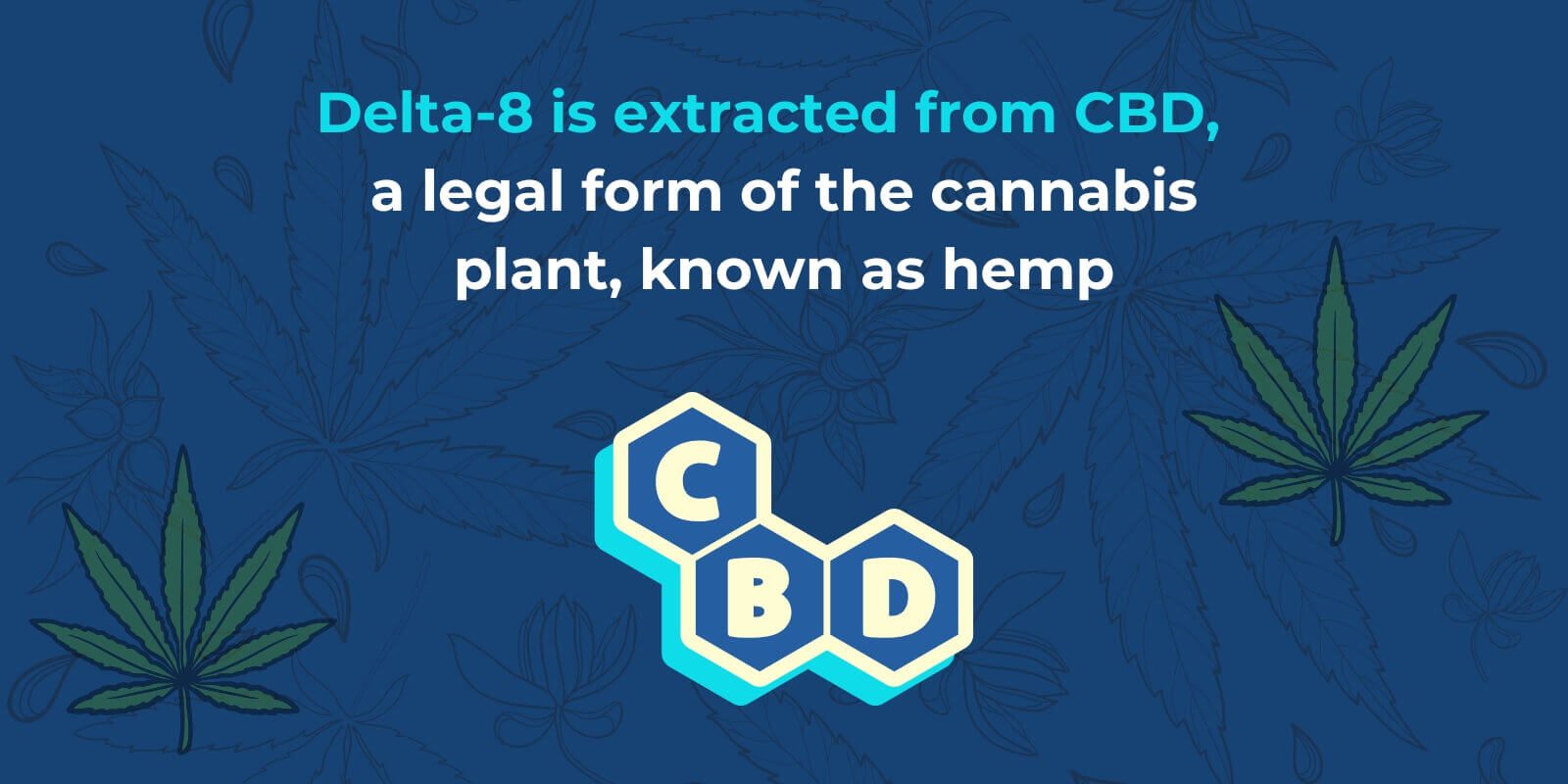
CBD vs Delta 8
What Is The Difference Between CBD And Delta-8?
While both are cannabinoids, delta-8 is more comparable to delta-9 than it is to CBD.
According to the Centers for Disease Control and Prevention, CBD can be synthetically converted into delta-8 THC, along with other THC isomers.
Delta-8 can cause impairing effects, whereas CBD does not.
CBD is also more commonly used for anxiety and insomnia relief, and delta-8 is used more commonly for relaxation and to achieve euphoria.
Additionally, the potential risks and side effects that come along with delta-8 are more severe than those of CBD. Side effects that come with CBD can be mild such as changes to one’s appetite, weight, or fatigue.
Lastly, another difference between the two is their legality. Delta-8 is not federally legal when converted from CBD or delta-9 synthetically. It is also not legal when the hemp it comes from has more than 0.3% delta-9 THC concentration.
What Is CBD?
CBD is a cannabinoid that is legal in many states and used for medicinal purposes.
CBD or “cannabidiol” is one of the main cannabinoids found in the cannabis plant, along with THC. While CBD is legal in most states, it can contain trace amounts of psychoactive compounds like delta-8 THC.
Though used for medical purposes, CBD products do not always require a prescription. You need to be at least 18 years old to buy CBD and other hemp-derived cannabis products in most states.
Products containing CBD can be found nearly everywhere, from retailers like malls and drug stores to gas stations and online stores. CBD comes in the form of edibles, gummies, vapes, oils, tablets, and topical creams.
CBD does not get you “high” like delta-8 or delta-9 THC.
Many federal and state laws now allow medical professionals to prescribe CBD as an alternative medicine to treat conditions like anxiety, pain, psychiatric issues, Parkinson’s disease, and diabetes.
However, the research on the effectiveness of CBD to treat these conditions remains limited.
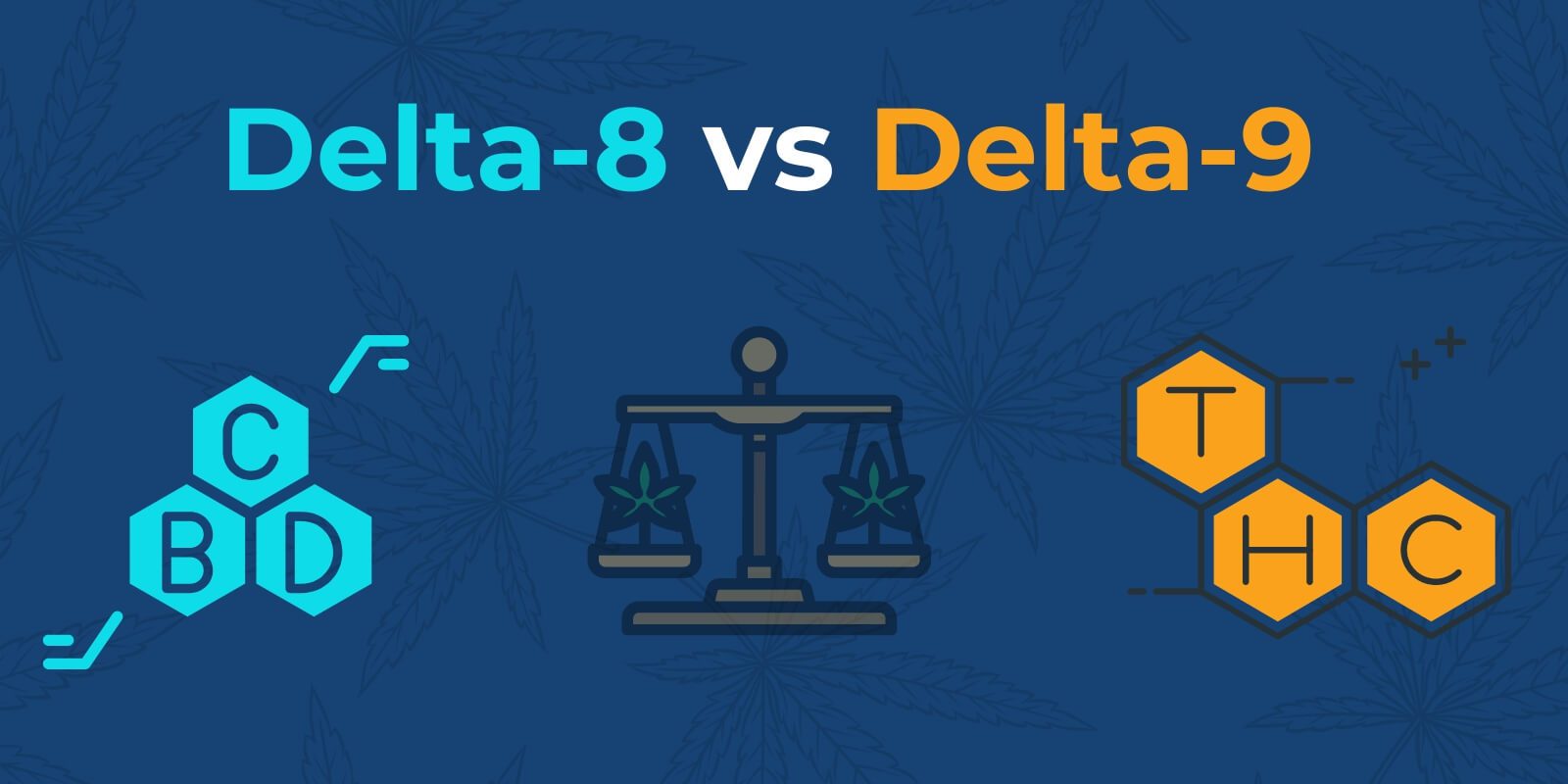
What To Know About Delta 8 vs Delta 9
What Is Delta-9 THC?
Delta-9 THC is the primary psychoactive cannabinoid found in cannabis plants.
Delta-9 THC causes a “high” when smoked or ingested and occurs naturally in the cannabis plant. However, some illegal cannabis products extract delta-9 THC in greater quantities to enhance the psychoactive effects.
Delta-9 THC is what you might think of when you hear the term “THC.”
THC or “tetrahydrocannabinol” is a cannabinoid that can cause euphoric feelings or even mild hallucinations. Delta-9 THC is usually just called “THC” because it is one of the most prevalent compounds in cannabis.
According to the National Institute on Drug Abuse (NIDA), “THC’s chemical structure is similar to the brain chemical anandamide. Similarity in structure allows the body to recognize THC and to alter normal brain communication.”
While delta-9 THC occurs naturally in more significant quantities than other THC variants, other cannabinoids like delta-8 THC can be extracted for their psychoactive effects.
The only chemical difference between delta-8 and delta-9 THC is the location of a specific double bond within each molecular structure. The location of this double bond makes them similar, but delta-8 is not as potent as delta-9.
What Are Cannabinoids?
Cannabinoids are the chemical compounds that affect you when you use cannabis.
Cannabis plants contain many different cannabinoids. Cannabinoids are natural chemical compounds that affect the brain, body, and central nervous system.
The most prevalent and commonly known cannabinoids are delta-9 tetrahydrocannabinol (THC) and cannabidiol (CBD).
Cannabinoids like CBD are not psychoactive; however, THC is a psychoactive compound.
According to the Food and Drug Administration (FDA), “Delta-8 THC is one of over 100 cannabinoids produced naturally by the cannabis plant but is not found in significant amounts in the cannabis plant.”
Due to the similar chemical structure to delta-9 THC, delta-8 can be addictive. While delta-8 THC is not as potent as delta-9, it mimics many of the same effects.

Delta 8 Use
What Is Delta-8 Used For?
A person may use delta-8 to produce “euphoric” effects, feel relaxed, or find relief from pain.
Some people may not want to achieve the “high” that delta-9 THC produces, so they turn to delta-8 because they believe it will produce milder effects.
There is concern about the way delta-8 is marketed for therapeutic use, as it is sometimes referred to as a healthier alternative to delta-9. However, there is no substantial research to back up its safety and efficacy.
Many young people struggle with mental health conditions, and they may turn to substances to self-medicate or use it as an unhealthy coping mechanism for stress and difficult feelings.
Some teens and young adults may also try marijuana as a way to experiment. They may think that weed is harmless in comparison to other drugs when in reality, there are numerous serious health effects it can cause.
What’s A Delta-8 High Like?
People who have used Delta-8 have reported experiencing effects such as:
- Relaxation
- Increased body awareness
- Euphoria
Some people may take it to increase their energy or uplift their mood. They may temporarily feel more calm or happy.
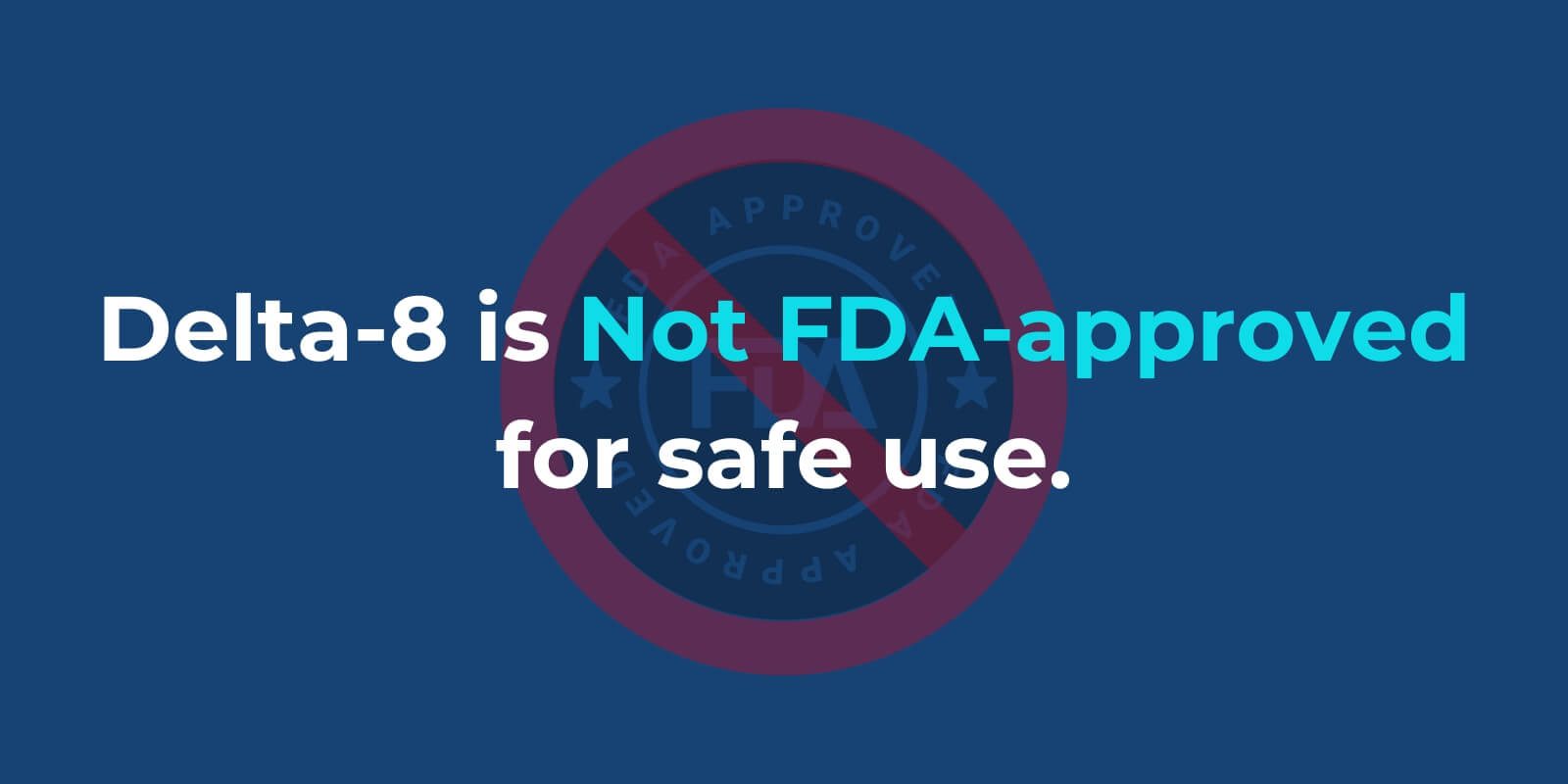
Is Delta-8 Safe To Consume?
It is not FDA-approved for safe use.
The FDA is concerned about labeling delta-8, other cannabinoid and terpene content, and variable THC concentrations.
The way it is packaged can be appealing to children and young people, as it may be offered in the form of gummies, chocolates, cookies, or other treats, also known as “edibles.” This makes it even more dangerous as it increases the risk of accidental exposure and poisoning.
According to the Food and Drug Administration, 66% of patients who consumed delta-8 THC products between December 2020 and February 2022 described adverse effects after ingesting food products like brownies or gummies.
It is also hard to know what is actually in these products, as they can be synthetically made with harmful chemicals.
What Happens If You Take Too Much Delta 8?
Some people may face unwanted effects if they take too much, such as:
- Sedation
- Slowed breathing
- Changes in blood pressure
- Changes in heart rate
Some adults who have been exposed to delta-8 THC products and mistaken them for CBD products have reported symptoms that are similar to cannabis intoxication.
If you or a loved one is experiencing delta-8 poisoning, seek medical help and call 911 immediately.
Our Accreditations
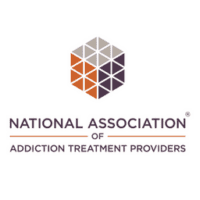

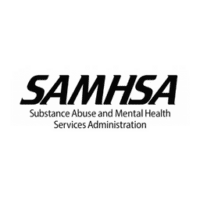

Can You Take Delta-8 Every Day?
The safety of taking delta-8 daily is unknown.
Since the FDA has notified the public of the possible harmful effects of delta-8, it would not be recommended to take delta-8 every day.
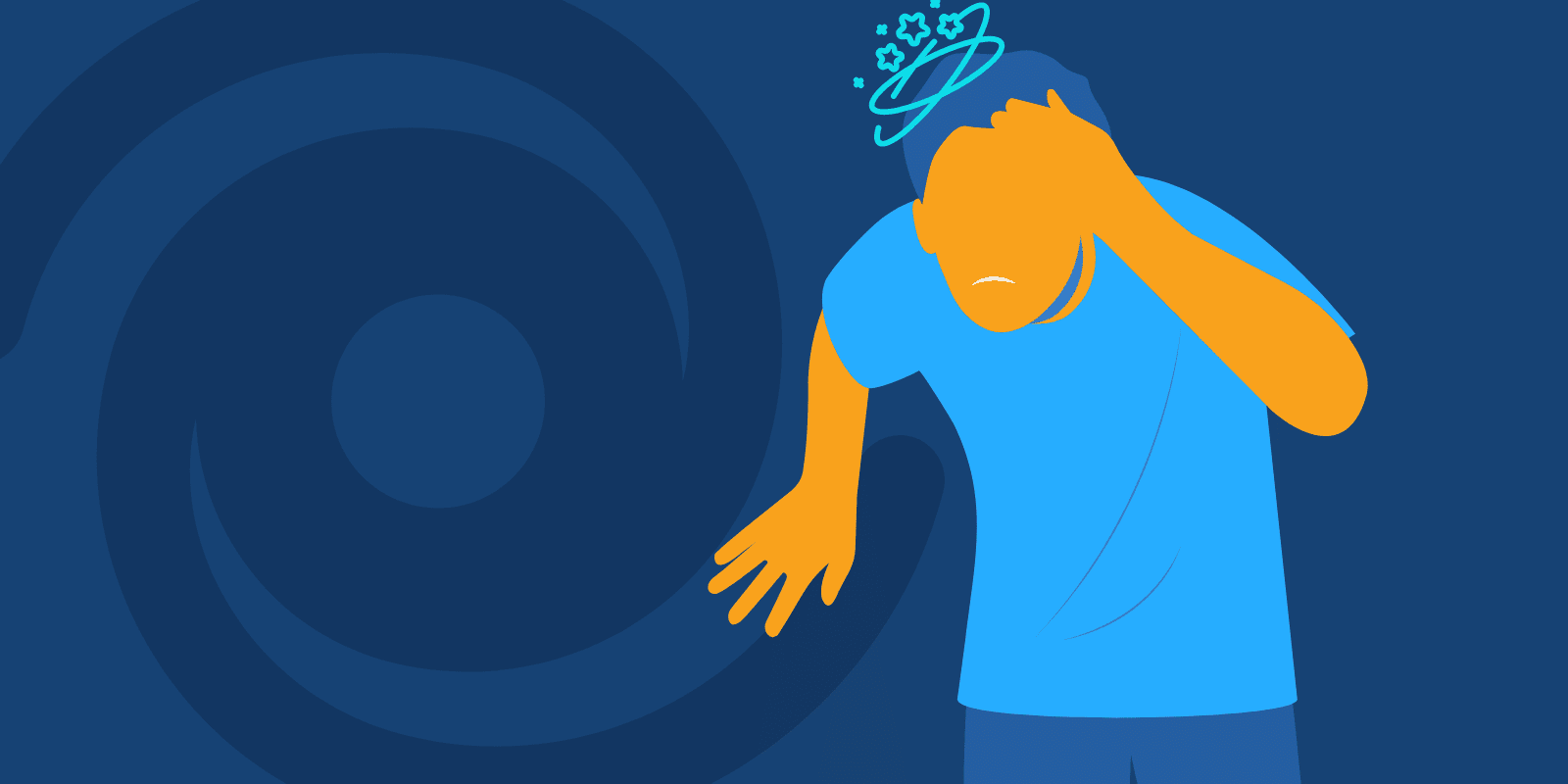
Delta 8 Side Effects
Does Delta-8 Have Long-Term Effects?
Extended use can potentially cause long-term effects.
Teens and young adults are more vulnerable to these effects because their brains and bodies are still going through major development throughout their mid-twenties.
Delta-8 can lead to long-term mental health conditions and affect a person’s physical health.
Synthetically producing delta-8 can involve many harmful chemicals that can damage the liver, cause cardiac problems, and much more.
What Are The Benefits Of Delta-8?
The health benefits are not well-understood and require more research.
It may offer temporary pain relief by making a person feel calmer and more relaxed.
A person who takes delta-8 may also think it is a healthier alternative to more potent drugs and that it comes with less serious side effects, but that may not be the case.
Some studies suggest that it may help improve appetite, but more research is needed.

What Are The Negative Side Effects Of Delta 8?
Adverse effects can include:
- Tremors
- Anxiety
- Dizziness
- Confusion
- Hallucinations
- Loss of consciousness
Accidental exposure has also resulted in symptoms that are similar to cannabis intoxication.
Other side effects of delta-8 can also include:
- Dry mouth, also known as “cotton mouth”
- Red eyes
- Increased appetite
- Sedation
Does Delta-8 Speed Up Your Metabolism?
One study shows that mice who were given delta-8 THC ate more than those given delta-9 THC, and they lost more weight than the group given delta-9.
One explanation for these findings could be that delta-8 acts on certain receptors in the central nervous system that play an important role in food intake, nausea, and metabolism.
In this study, norepinephrine levels increased in those who took delta-8. Norepinephrine is responsible for regulating metabolism, which may support the idea that delta-8 can speed up metabolism.
However, more research is needed to determine how safe and effective it is.
Does Delta-8 Harm Your Brain?
Effects have been reported in some cases to include symptoms such as:
- Slurred speech
- Lack of coordination
- Lethargy
- Decreased psychomotor activity
- An increased heart rate that progresses to slowed heart rate
- Low blood pressure
- Difficulty breathing
- Sedation
- Coma
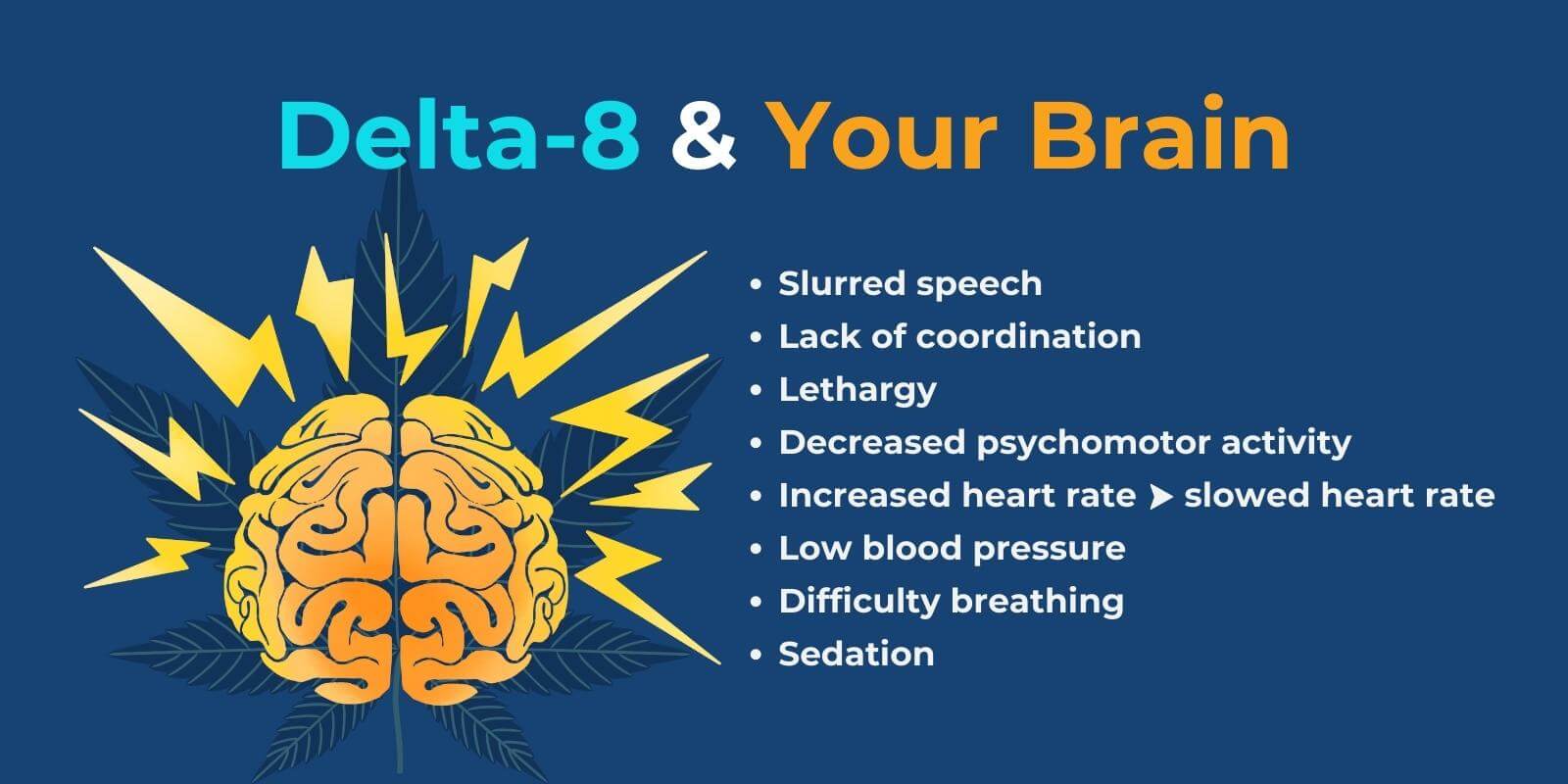
Does Delta-8 Hurt Your Lungs?
One adverse effect of delta-8 use that has been reported includes difficulty breathing.
Delta-8 may also be smoked, which can cause damage and irritation to the lungs.
Can Delta-8 Affect Your Liver?
There are a variety of potential health risks, one of which includes possible liver damage.
A primary concern around the use of delta-8 is the potential use of harmful chemicals to make delta-8 THC. These chemicals can negatively impact a person’s health when inhaled or consumed.
Can Delta-8 Trigger Psychosis?
Psychosis refers to conditions that affect the mind, where a person loses a sense of contact with reality.
Symptoms of psychosis can involve hallucinations, which can be seeing or hearing things that are not real, and delusions, which refer to beliefs that are not based on reality or are false.
Psychosis can be an adverse side effect of delta-8 use.
Delta 8 Addiction & Treatment
Can You Get Addicted To Delta-8?
It is possible to become addicted to delta-8.
A person who becomes addicted loses control over their substance use and is unable to stop despite its negative consequences on their life, health, and relationships.
An individual may develop a tolerance, meaning they need more and more of a drug to achieve the same desired effects. Over time, a tolerance can form into a dependence which can quickly develop into an addiction.
Are There Any Withdrawal Symptoms From Delta-8?
A person may develop a dependence to delta-8 THC. Drug dependence is characterized by significant impairment from persistent use of a substance.
When a person develops a dependence, they will likely experience withdrawal symptoms when they abruptly stop or significantly decline the use of a substance.
Some withdrawal symptoms can involve:
- Irritability
- Restlessness
- Loss of appetite
- Depression
If you or a loved one are experiencing withdrawal symptoms, seek medical help. If you are in imminent danger, call 911.
Will Delta-8 THC Lead To Using Other Substances?
Using delta-8 THC might lead to your teen using other substances.
As the teenage brain develops, your child is vulnerable to any substance that can “hijack” the feel-good chemicals that help to regulate emotions, mood, and behavior. Substances like delta-8 THC can be a shortcut your child might use to cope with stress or mental illness.
When teens abuse any substance, whether legal like delta-8 THC or illegal like marijuana, they are more likely to develop a substance use disorder as adults.
According to Youth.gov, “most adults who have a substance use disorder started using before age 18 and develop the disorder by age 20.” The use of any substance can alter neural pathways that are developing in the adolescent brain.
The brain does not fully develop until young adults are about 25 years old. When your teen starts using delta-8 or other substances, they might self-medicate for mental health issues, like depression or anxiety. They could also be coping with low self-esteem or stress.
When teens abuse delta-8 THC for its psychoactive effects, they aren’t learning healthy coping skills to manage underlying issues. This pattern of behavior alters the developing neural pathways, and your child is more likely to turn to substances to cope throughout life.
Since delta-8 THC is less potent than the delta-9 THC found in illegal marijuana, your teen might switch to using illegal marijuana if they develop a tolerance for the effects of delta-8.
The longer that your teen uses substances like delta-8, the effects get less potent over time. They could develop a tolerance, meaning they might need more and more delta-8 for the same effect.
When your teen develops a high tolerance, they might “chase” the initial high and find it with other substances. Chasing the initial impact could lead to illegal drugs, alcohol, or seeking the more potent delta-9 THC.
Teens and Delta 8
Where Are Teens And Young Adults Buying Delta-8 THC Products?
Teens and young adults can buy delta-8 THC products nearly anywhere in most states.
Teens can purchase delta-8 in the same places as CBD. Legal cannabis products can be found in medical marijuana dispensaries, drug stores, shopping malls, specialty stores, tobacco shops, online, and gas stations.
Many retailers can sell delta-8 legally under the same laws that allow them to sell CBD products. While most state laws have age restrictions on these products, teens can get them easily from older teens or if store clerks do not ask for identification.
Delta-8 THC products come in similar forms as other legal cannabis products like CBD.
Both CBD and delta-8 can be sold in several different forms. These products might not even look like drugs and product labeling can easily be disguised as tobacco products or even cookies and candy.
Some of the most common delta-8 THC products that teens and young adults might use include:
- Vaping devices, which can cause medical issues due to harmful by-products in vape cartridges
- Tinctures, extracts, or vape liquids
- Edibles, like gummies, candies, and cookies
- Beverages that contain delta-8 THC
Side effects from the by-products in vape cartridges can be harmful, even if they don’t contain delta-8 THC. Vaping or using e-cigarettes is a rising trend among teens. Teens might vape to get nicotine, marijuana, CBD, delta-8 THC, or other substances.
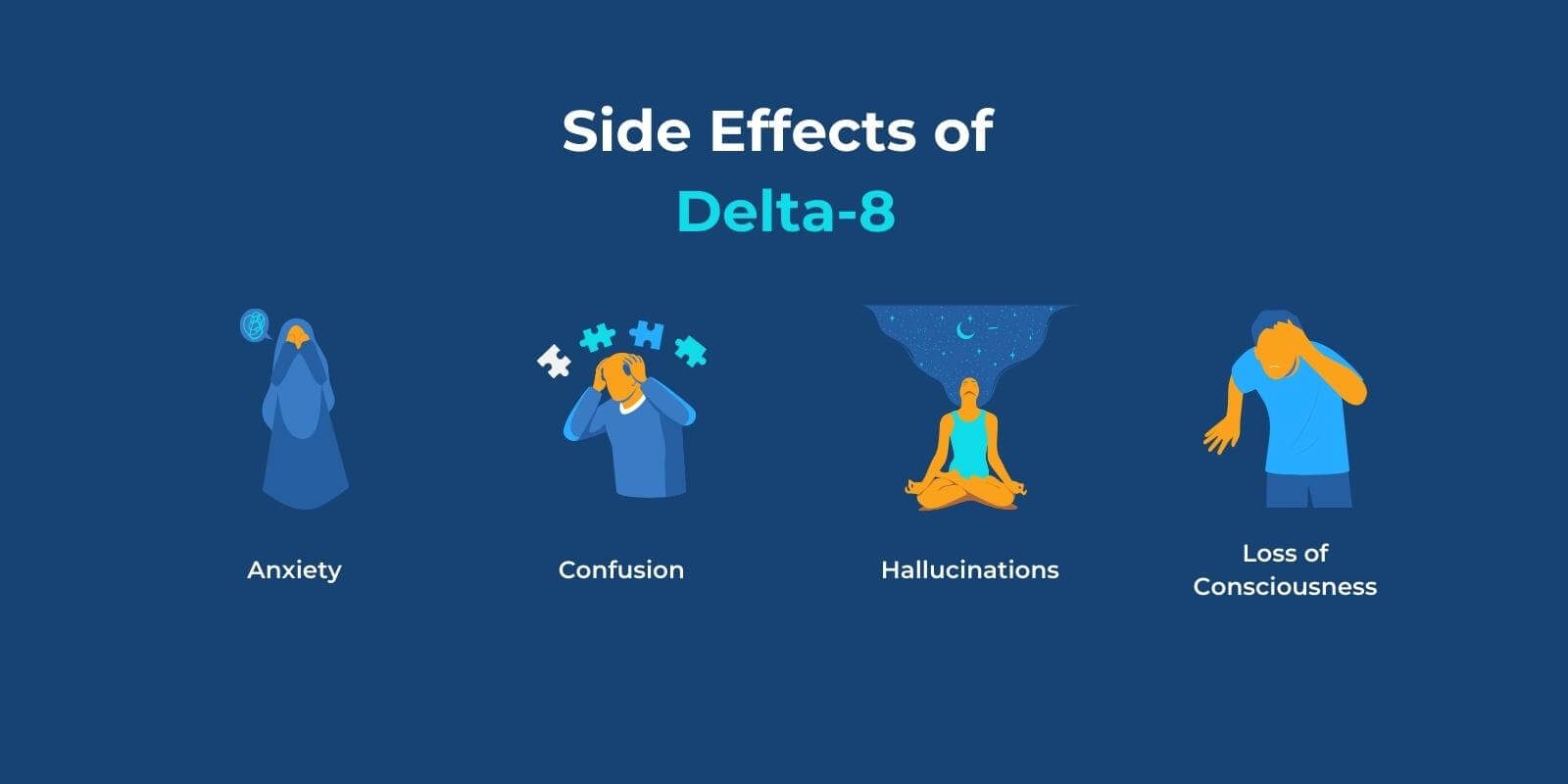
How Can I Tell If My Teen Is Using Delta-8 THC?
You can tell if your teen is using delta-8 THC if you notice cannabis products or observe behavioral changes.
Since delta-8 can be vaped, you might notice different vaping products in your home. Some vaping devices can look like everyday objects, like pens, USB drives, regular cigarettes, or even built into hoodies or backpacks.
Vaping liquids often contain different flavors and scents in addition to nicotine, delta-8 THC, or CBD. You might smell some of these scents on your teen, in their car, or coming from their room. Vapes can smell like candy, fruit, mint, teas, tobacco, or desserts.
Since delta-8 THC is similar to delta-9, you might notice similar signs when your teen uses delta-8 THC products, such as:
- Bloodshot eyes
- Increased appetite
- Lower levels of motivation
- Decreased performance in school
- Isolating themselves from family and friends
- Change in friendships
- Skipping school or other disciplinary issues
- Loss of interest in hobbies, sports, and other activities
- Secretive behaviors
- Tiredness and fatigue
- Giddiness or excessive laughter
- Delayed reaction time
- Mood swings
- Anxiety and paranoia
When you notice changes in your teen’s behavior and mental state like this, they might be abusing delta-8 THC or other substances. When you see physical evidence, like the presence of vaping devices and these behaviors, your child could be using cannabis products.
Teens go through many changes into young adulthood. However, if you notice significant changes that appear problematic, your child might have substance abuse or an underlying mental health issue.
Always discuss any concerns with a healthcare provider, as some behavioral and mental health issues could be rooted in medical problems.
If you determine that your child is abusing delta-8 THC products, you might want to consider getting them into inpatient or outpatient treatment. When your teen continues to abuse or misuse substances, the problems might worsen as they get older.
How Do I Recover From Delta-8?
If you are experiencing mild adverse effects from delta-8 use and do not require medical attention, some ways to take care of yourself and recover from delta-8 can include:
- Staying hydrated
- Get rest
- Eat healthy foods
- Go outside and get fresh air
- Call a trusted friend for support
If a person requires treatment for delta-8 abuse or addiction, there are many options for help.
Depending on the severity of a person’s condition, they may consider inpatient or outpatient treatment.
Inpatient treatment can be helpful for those struggling with substance abuse who require a high level of structure and support. It also typically requires staying in a hospital or treatment facility.
Outpatient treatment offers a bit more flexibility and allows a person to stay at home while receiving treatment. Intensive outpatient treatment (IOP) can be helpful for teens and young adults who may want to balance responsibilities like work and school but still get help.
Psychotherapy can also be helpful for those struggling with mental health or substance abuse to understand how their thoughts, feelings, and behaviors are all connected.
If you or a loved one are struggling, there is help for you.
Does My Child Need Treatment For Delta-8 THC Use?
Your child might need treatment if they are abusing delta-8 THC or other substances.
Despite the legality, cannabis products containing delta-8 can be highly addictive. Teens and young adults are much more vulnerable to developing an addiction than older adults.
Many treatment centers offer inpatient and outpatient services depending upon the severity of your child’s substance abuse.
When delta-8 use creates issues with other substances and behavioral problems, you want to get ahead of these issues early on. The sooner you get your child to stop using successfully, they will be less likely to develop a substance use disorder later in life.
Signs that your teen needs treatment for delta-8 THC or other substances include:
- Failed attempts to cut back or quit
- Legal issues resulting from substance use
- Decreased physical and mental wellness
- Developing mental health and mood disorders from substance abuse
- Persistent disciplinary problems at school that could lead to expulsion
- A lack of motivation or interest in developing a future
When substances like delta-8 hijack your teen’s brain, your child might struggle during adolescence and into adulthood. You can reach out to treatment centers if you are concerned about an emerging or worsening teen substance abuse issue.
Treatment centers can offer support, resources, therapy, skill-building, and other services to help your child develop healthy habits as they grow into young adults. Marijuana detox programs also provide specific emphasis on how to healthily overcome weed addiction.
The new marijuana strain delta-8 THC might be legal in most states, but its use can still develop into future substance abuse or mental health issues. Sandstone Care is here to support teens and young adults with substance use disorders. Call (888) 850-1890.
FAQ
You have questions. We have answers.
Our goal is to provide the most helpful information. Please reach out to us if you have any additional questions. We are here to help in any way we can.
Delta-8 has not been approved or evaluated for its safety.
The FDA has notified the public about concerns regarding the safety of delta-8.
A person who uses delta-8 may try to achieve feelings of “euphoria,” relaxation, and calmness.
Some people may use delta-8 in the hope that it offers pain relief.
Aside from relaxation, delta-8 can also cause negative feelings.
It can cause someone to feel lethargic and can cause mental health problems when the drug is abused over long periods.
According to a Pharmacology Biochemistry and Behavior study, delta-8 was shown to cause alterations in neurotransmitter levels like dopamine and serotonin.
Serotonin is a brain chemical responsible for important functions like mood regulation, emotion regulation, appetite, and digestion.
Low levels of serotonin have been associated with mental health conditions like depression, and high levels of serotonin can contribute to anxiety, restlessness, and hyperactivity.
At normal levels, serotonin allows a person to feel more focused, stable, and calm.
When a substance alters a person’s serotonin levels, it can lead to numerous mental and physical problems.
Delta-8 THC is considered legal on a federal level when it is derived naturally from hemp plants, not marijuana.
The 2018 Farm Bill legalized industrial hemp that has a delta-9 THC concentration of no more than 0.3% and removed it from being a schedule I controlled substance.
Some state laws prohibit the sale of delta-8 and delta-9 products.
Because delta-8 is usually synthetically made and not well-regulated, it is a cause for concern.
The length of time delta-8 stays in a person’s system can depend on a variety of different factors.
Those factors can include a person’s metabolism, how the substance was taken, or how frequently they engage in substance use.
Delta-8 is believed to stay in the system and be detectable on a urine or blood drug test anywhere from 2 to 30 days after it is taken.
In hair tests, THC may be detectable for up to 90 days.
Delta-8 has not been approved for medical use.
Some people, especially teens and young adults, may use delta-8 to self-medicate. Mental health disorders significantly impact the young population, making them especially vulnerable to substance abuse and the negative effects that come along with it.
Using delta-8 as a way to self-medicate can make matters worse.
If you or a loved one are struggling with anxiety or other mental health conditions, it is important to seek help from a professional like a healthcare provider to receive proper diagnosis and treatment.
Delta-8 THC is derived from CBD, but it is not the same.
Cannabis plants contain many different cannabinoids, which can affect you in different ways. Delta-9 THC and CBD are the most prevalent cannabinoids found in cannabis. However, minor cannabinoids like delta-8 THC can be extracted from hemp and CBD.
Delta-8 THC, though derived from CBD, is more similar to delta-9 THC.
Delta-9 THC is the main psychoactive chemical in marijuana. Delta-8 can make you feel high; however, the effects are less potent than delta-9.
While CBD and delta-8 THC are not the same, both come from a legal form of the cannabis plant called “hemp.”
Hemp and marijuana are cannabis plants with different amounts of delta-9 THC.
Hemp plants are the same as marijuana, except hemp has a lower amount of the psychoactive compound delta-9 THC than marijuana. Both are forms of the cannabis sativa plant.
According to the National Center for Complementary and Integrated Health (NCCIH), “‘marijuana’ refers to parts of or products from the plant Cannabis sativa that contain substantial amounts of tetrahydrocannabinol (THC).”
According to the Drug Enforcement Agency (DEA), “the FDA and DEA have concluded that marijuana has no federally approved medical use for treatment in the US and thus it remains as a Schedule I controlled substance under federal law.”
The NCCIH further explains that “[s]ome cannabis plants contain very little THC. Under US law, these plants are considered ‘industrial hemp’ rather than marijuana.”
In other words, hemp products like hemp-derived CBD are legal, but products made from marijuana are not.
Following the passage of the 2018 Farm Bill, the cannabis industry can now sell most hemp-derived products legally. While these products might contain only trace amounts of THC, the THC can be extracted to create products with delta-8 THC.
Delta-8 vape cartridges do not commonly contain nicotine.
However, there is concern regarding contamination from the manufacturing of delta-8 products.
Some manufacturers may use unsafe household chemicals to make delta-8 THC.
When consumed or inhaled, these chemicals may become very harmful.
Delta 10 is considered a naturally occurring cannabinoid because it appears in the cannabis plant without the need for humans.
Delta-8 is considered to be stronger and more potent than delta-10. Some people report that delta-8 produces effects that are similar to the cannabis Indica plant, whereas delta-10 produces effects similar to the Cannabis Sativa plant.
No, delta-8 is not the same as K2.
However, both contain potentially dangerous chemicals.
K2, according to the DEA, is a synthetic version of THC, meaning it is entirely human-made and not naturally occurring.
K2 and spice are synthetic cannabinoids that contain highly psychoactive chemicals.
Another big difference between delta-8 and k2 is that delta-8 THC is legal in most states and federally legal with some restrictions. K2, along with other synthetic cannabinoids, is illegal for possession, sale, and use in the United States.

